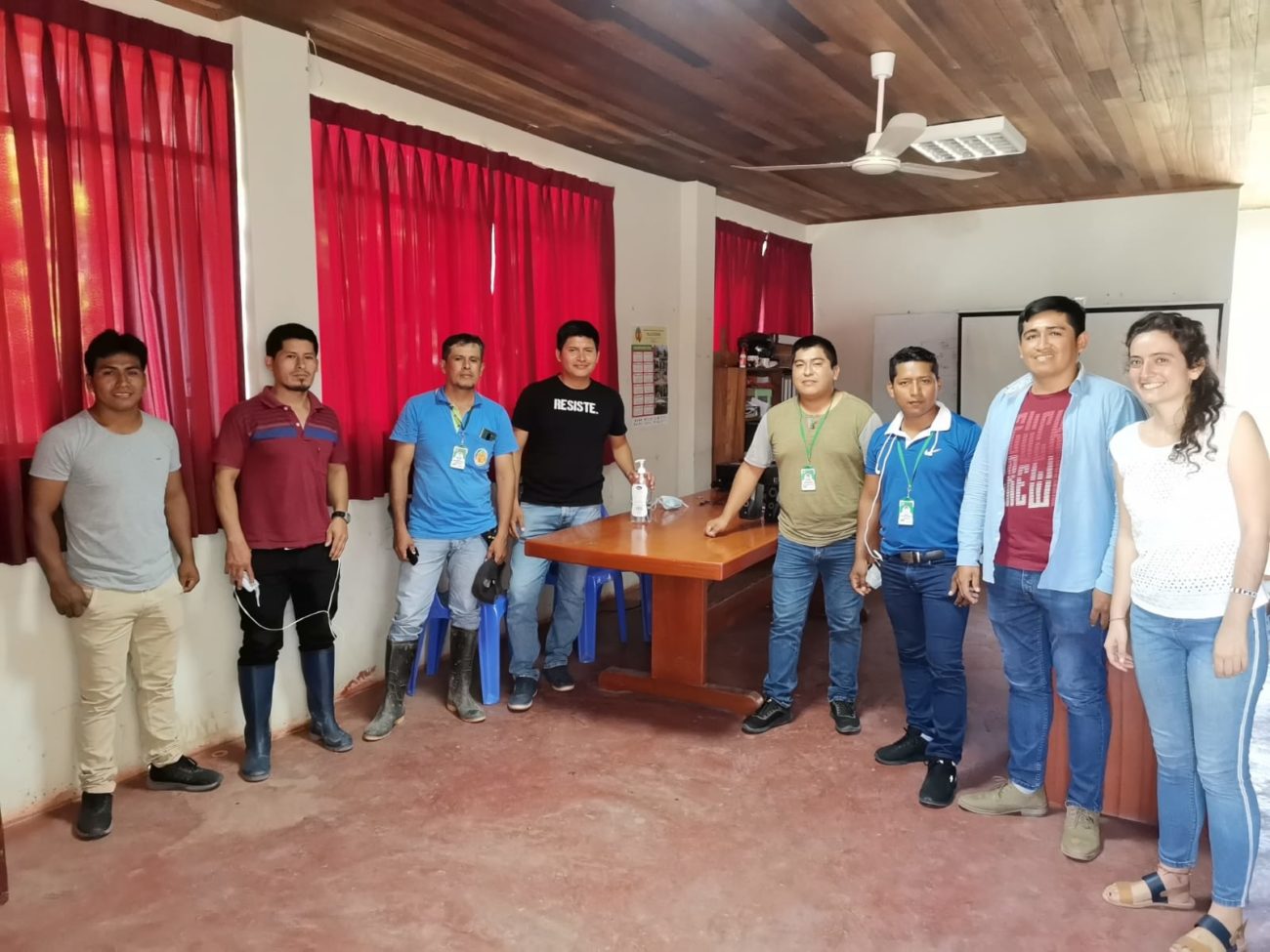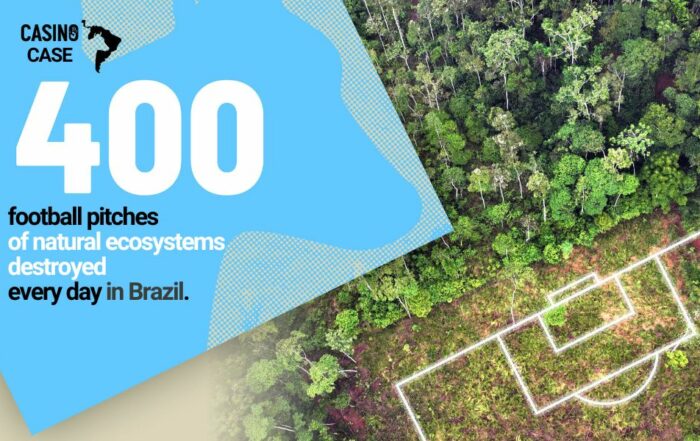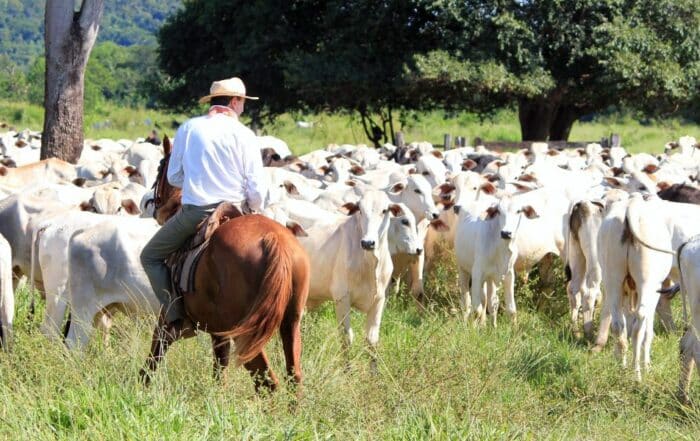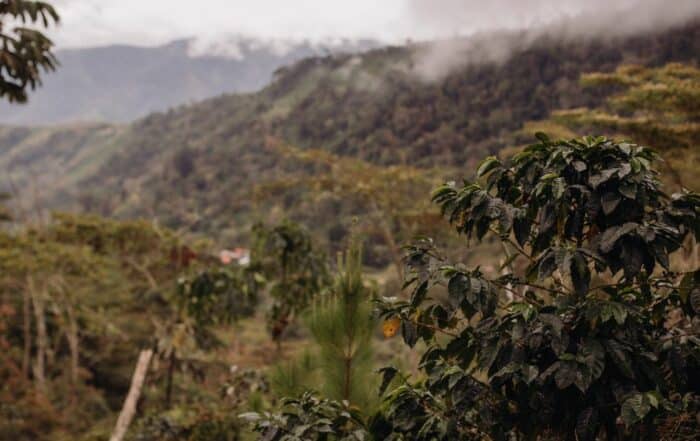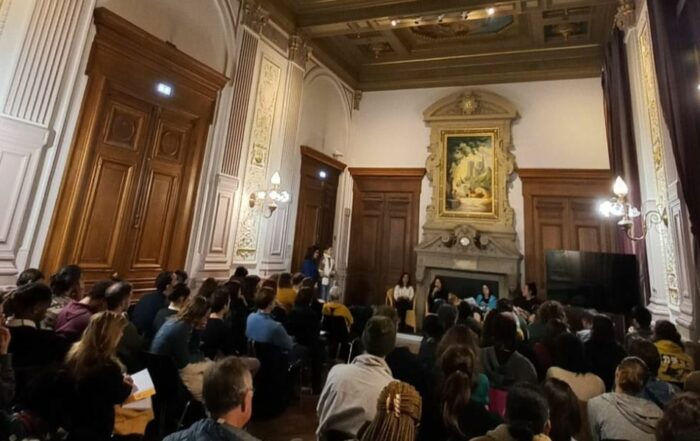At the end of March, the technical team of the Valle Ubiriki cooperative, a partner in Pichanaki since 2016, and the Envol Vert field team met to attend a training session on sustainable coffee tree fertilisation. This training was conducted by a CIRAD researcher and organised following a proposal from Lobodis, a French company.
![[AGROCAFE]photo de groupe formation Valle Ubiriki_MARS2021@M.CORREIA](https://da1323dc.delivery.rocketcdn.me/wp-content/uploads/2021/03/AGROCAFEphoto-de-groupe-formation-Valle-Ubiriki_MARS2021@M.CORREIA-1024x501.jpeg)
The company, which has been a partner of Envol Vert and Valle Ubiriki since March 2020, worked on the life cycle analysis of coffee. The aim was to evaluate the environmental impact of coffee, from the plot to the cup! The result is clear, it is the initial agricultural practical that has the greatest impact. Both through changes in land use (and therefore in relation with deforestation) but also during the fertilisation of coffee trees, which can cause N2O emissions (a greenhouse gas 300 times more powerful than CO2), water pollution and degradation of soil quality.
Following this study, the objective is to work together to minimise the environmental impacts caused by coffee growing in the Peruvian Amazon. The aim of this training course, conducted by CIRAD, was to learn more about the fertilisation of coffee trees, the real needs of the plant and new tools or methods for a more personalised and sustainable fertilisation.
In the coming weeks, Envol Vert and Valle Ubiriki will work together to set up training for farmers. This training will focus on fertilisation practices but also on the importance of agroforestry for the sustainability and resilience of coffee growing in the face of climate change. This is a new opportunity for the cooperative and Envol Vert teams to work together in a cross-cutting manner and thus participate in the dissemination of skills between the teams. A way of transmitting the knowledge acquired on agroforestry systems with coffee to as many farmers as possible.
At the end of March, the technical team of the Valle Ubiriki cooperative, a partner in Pichanaki since 2016, and the Envol Vert field team met to attend a training session on sustainable coffee tree fertilisation. This training was conducted by a CIRAD researcher and organised following a proposal from Lobodis, a French company.
![[AGROCAFE]photo de groupe formation Valle Ubiriki_MARS2021@M.CORREIA](https://da1323dc.delivery.rocketcdn.me/wp-content/uploads/2021/03/AGROCAFEphoto-de-groupe-formation-Valle-Ubiriki_MARS2021@M.CORREIA-1024x501.jpeg)
The company, which has been a partner of Envol Vert and Valle Ubiriki since March 2020, worked on the life cycle analysis of coffee. The aim was to evaluate the environmental impact of coffee, from the plot to the cup! The result is clear, it is the initial agricultural practical that has the greatest impact. Both through changes in land use (and therefore in relation with deforestation) but also during the fertilisation of coffee trees, which can cause N2O emissions (a greenhouse gas 300 times more powerful than CO2), water pollution and degradation of soil quality.
Following this study, the objective is to work together to minimise the environmental impacts caused by coffee growing in the Peruvian Amazon. The aim of this training course, conducted by CIRAD, was to learn more about the fertilisation of coffee trees, the real needs of the plant and new tools or methods for a more personalised and sustainable fertilisation.
In the coming weeks, Envol Vert and Valle Ubiriki will work together to set up training for farmers. This training will focus on fertilisation practices but also on the importance of agroforestry for the sustainability and resilience of coffee growing in the face of climate change. This is a new opportunity for the cooperative and Envol Vert teams to work together in a cross-cutting manner and thus participate in the dissemination of skills between the teams. A way of transmitting the knowledge acquired on agroforestry systems with coffee to as many farmers as possible.

